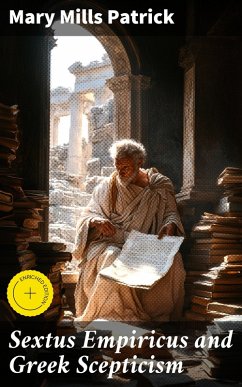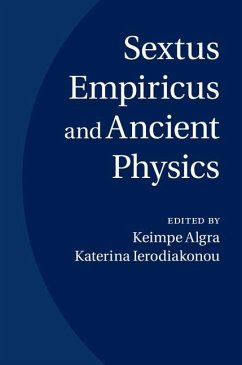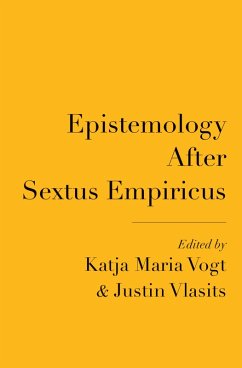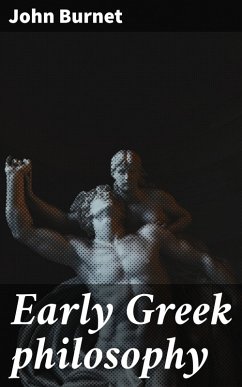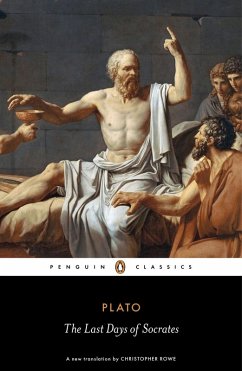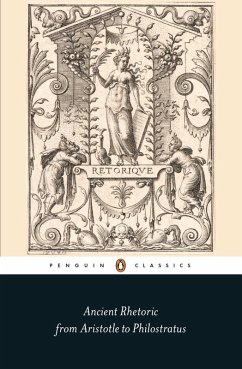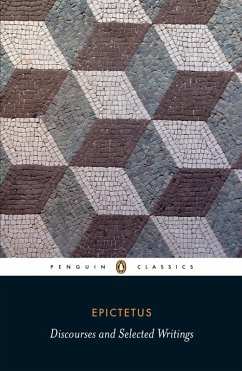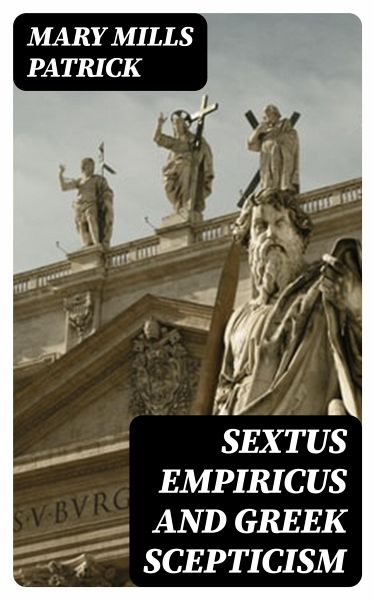
Sextus Empiricus and Greek Scepticism (eBook, ePUB)
Versandkostenfrei!
Sofort per Download lieferbar
1,99 €
inkl. MwSt.
Weitere Ausgaben:

PAYBACK Punkte
0 °P sammeln!
In "Sextus Empiricus and Greek Scepticism," Mary Mills Patrick deftly navigates the intricate landscape of ancient skepticism, illuminating the contributions of Sextus Empiricus, a pivotal figure in the development of skeptical philosophy. Patrick's literary style is both scholarly and accessible, weaving together the historical context of Sextus's works with a clear exposition of the philosophical debates of his time. She meticulously examines Sextus's arguments against dogmatism, dissecting his strategies of inquiry while situating them within the broader spectrum of Greek thought, ranging f...
In "Sextus Empiricus and Greek Scepticism," Mary Mills Patrick deftly navigates the intricate landscape of ancient skepticism, illuminating the contributions of Sextus Empiricus, a pivotal figure in the development of skeptical philosophy. Patrick's literary style is both scholarly and accessible, weaving together the historical context of Sextus's works with a clear exposition of the philosophical debates of his time. She meticulously examines Sextus's arguments against dogmatism, dissecting his strategies of inquiry while situating them within the broader spectrum of Greek thought, ranging from Socratic questioning to later Hellenistic philosophies. Mary Mills Patrick was a prominent scholar whose expertise in ancient philosophy and classical studies uniquely positioned her to explore the underpinnings of skepticism. Educated in an era where women's voices were often marginalized in academia, Patrick's work resonates with her commitment to understanding and promoting the rich nuances of philosophical discourse. Her thorough analyses draw from a deep well of historical knowledge, ensuring that Sextus's contributions are accessible and relevant to contemporary readers seeking to delve into skeptical thought. "Sextus Empiricus and Greek Scepticism" is an essential read for anyone interested in the evolution of philosophical thought. Patrick's insightful examination not only enhances our understanding of Sextus Empiricus but also invites readers to reflect critically on the nature of knowledge and belief. This book serves as both an introduction for novices and a rich resource for seasoned scholars, making it a valuable addition to any philosophical library.
Dieser Download kann aus rechtlichen Gründen nur mit Rechnungsadresse in A, B, BG, CY, CZ, D, DK, EW, FIN, F, GR, H, IRL, I, LT, L, LR, M, NL, PL, P, R, S, SLO, SK ausgeliefert werden.




